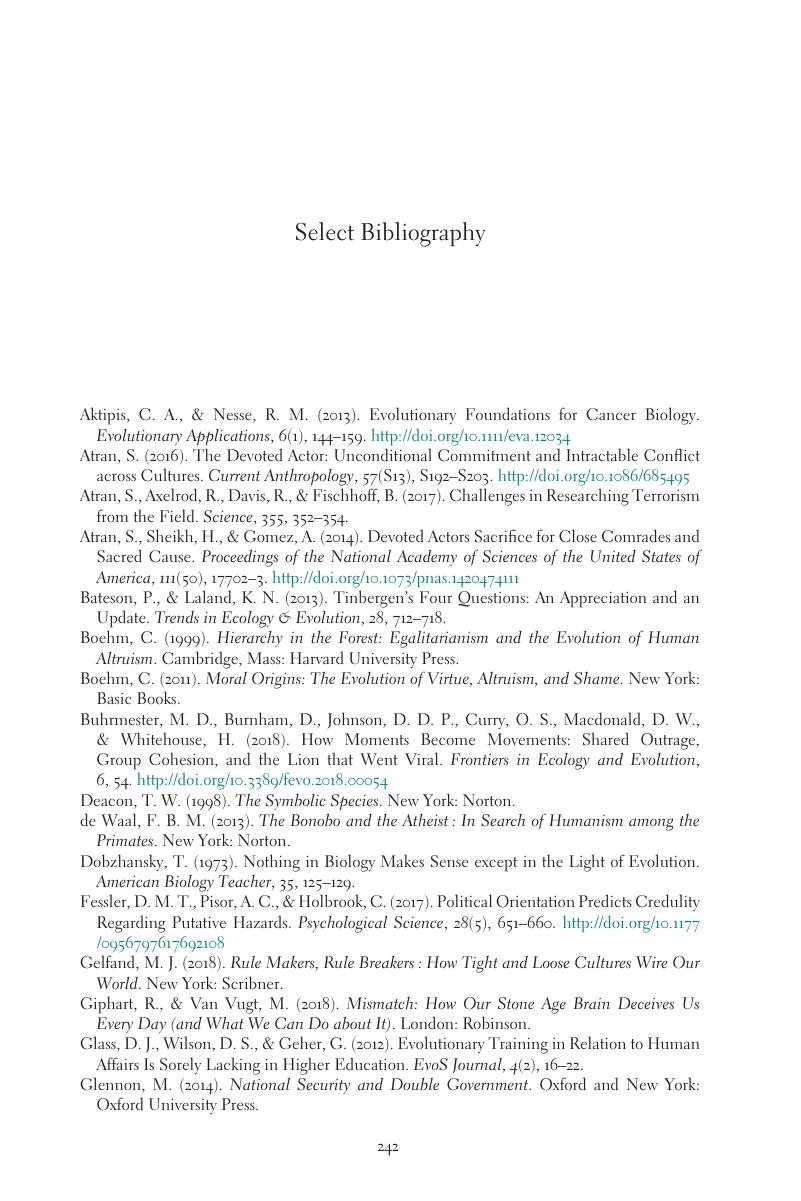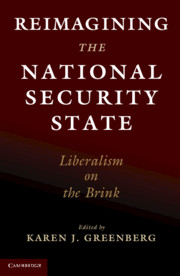Book contents
- Reimagining The National Security State
- Reimagining The National Security State
- Copyright page
- Contents
- Contributors
- Foreword
- Acknowledgments
- A Note from the Editor
- Part I The National Security State in Perspective
- Part II Tracking the Decline of Liberalism
- Part III The Future Imagined
- Notes
- Select Bibliography
- Index
- References
Select Bibliography
Published online by Cambridge University Press: 25 October 2019
- Reimagining The National Security State
- Reimagining The National Security State
- Copyright page
- Contents
- Contributors
- Foreword
- Acknowledgments
- A Note from the Editor
- Part I The National Security State in Perspective
- Part II Tracking the Decline of Liberalism
- Part III The Future Imagined
- Notes
- Select Bibliography
- Index
- References
Summary

- Type
- Chapter
- Information
- Reimagining the National Security StateLiberalism on the Brink, pp. 242 - 244Publisher: Cambridge University PressPrint publication year: 2019



